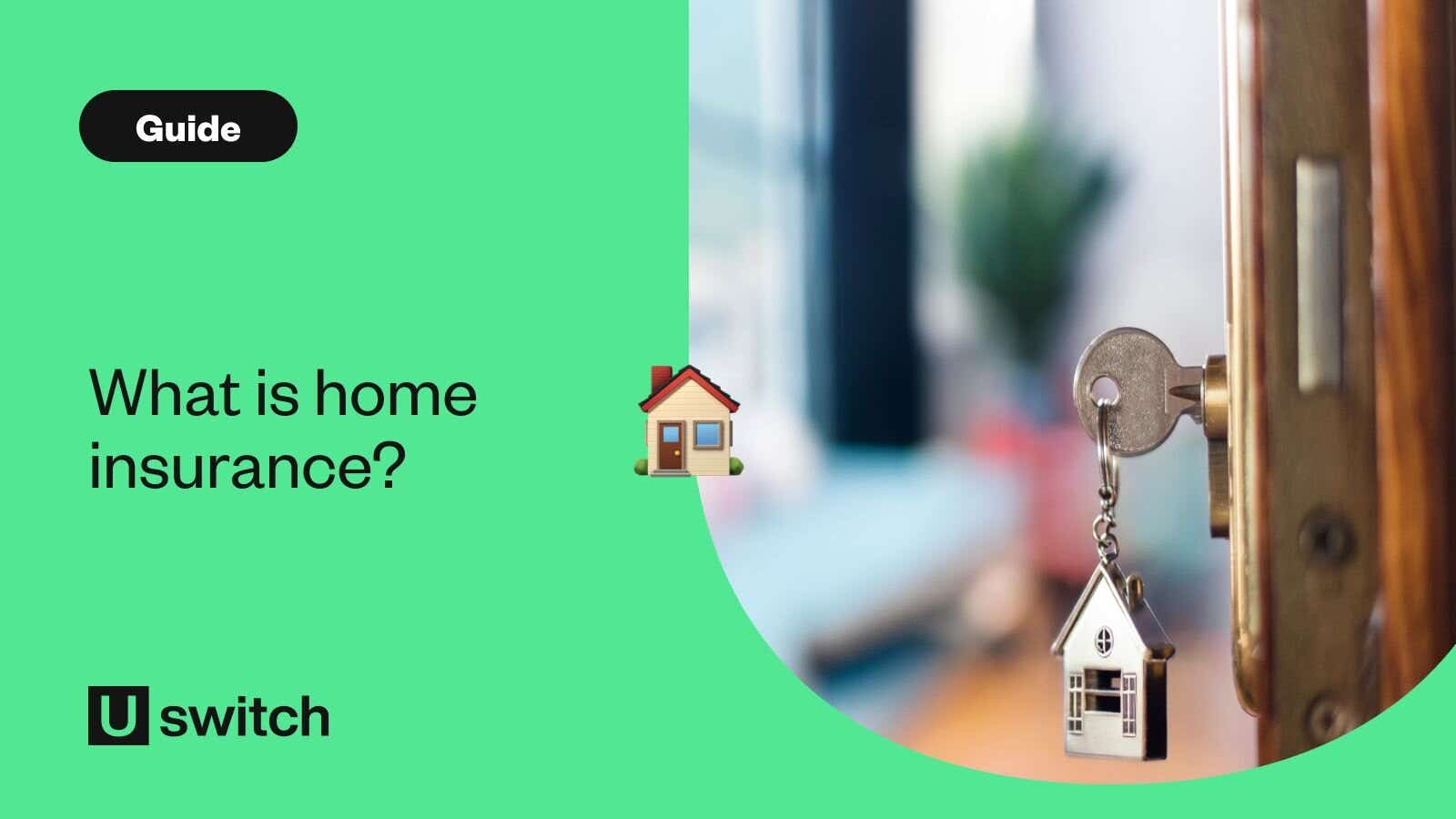What is home insurance?


Types of home insurance
There are 2 main types of home insurance - buildings and contents insurance:
- Buildings insurance – covers the structure of your home. That’s the walls, roof, windows, and permanent fixtures like your kitchen or bathroom.
- Contents insurance – protects your belongings. Think furniture, clothes, gadgets, and everything else you’d take if you moved house.
You can buy these separately or together as a combined policy. What’s right for you will depend on your home and your circumstances.
How does home insurance work?
In simple terms, home insurance works by helping you cover the cost if something goes wrong. You pay a premium (either monthly or annually) and in return, the insurer will help pay for repairs, replacements or rebuilds, depending on your policy.
If you make a claim, you’ll usually have to pay an excess, that’s the bit you contribute towards the cost. The insurer covers the rest up to the limits in your policy.
It's important to read your policy documents to understand what is covered and what to avoid that may invalidate your insurance.
What does home insurance cover?
This really depends on the policy you choose, but generally:
- Buildings insurance covers damage to the structure of your home caused by things like fire, flood, storms, subsidence, and vandalism.
- Contents insurance covers damage or loss of your belongings due to fire, flood, theft, or accidental damage (if you’ve added that extra cover).
Policies can also include or offer as add-ons cover for things like:
- Legal expenses
- Home emergencies like a boiler breakdown
- Personal possessions you take out and about
Find out how much home insurance you need.
What are the benefits of home insurance?
The biggest benefit is peace of mind. Knowing you’re covered means you don’t have to worry as much about how you’d cope financially if the worst happened.
Other plus points:
- You could save thousands if disaster strikes.
- It’s usually required by mortgage lenders for buildings insurance at least.
- It can be tailored, so you only pay for the cover you want.
Do I need home insurance?
There’s no legal requirement to have home insurance in the UK. But if you have a mortgage, your lender will almost certainly insist on building insurance.
Even if you own your home outright, or you’re renting, in which case the landlord covers the building, it’s worth thinking about contents insurance. Imagine having to replace everything after a fire or flood, the cost could be enormous.
How can I cut the cost of home insurance?
A few tips that might help:
- Shop around — don’t just auto-renew.
- Pay annually if you can — monthly payments often come with added interest - our annual or monthly home insurance guide has more on this.
- Increase your excess — a higher excess can bring your premium down, just make sure you could afford it if you had to claim.
- Secure your home — better locks, an alarm, even joining a neighbourhood watch can sometimes lower premiums.
And of course, make sure you’re not paying for cover you don’t need. It’s about getting the right level of protection at a price that feels fair.
Compare home insurance quotes
See a range of home insurance quotes in just a few minutes when you compare with Uswitch
FAQs
What is the best home insurance for me?
The best home insurance for you depends on your needs. If you own your home, you’ll likely want both buildings and contents cover. Renters might only need contents insurance. It’s worth comparing policies to see which offers the right protection.
What is the average cost of home insurance?
The average cost of home insurance varies depending on things like the size and location of your home, and the level of cover.
Does home insurance cover moving?
Home insurance doesn’t usually cover damage or loss when you’re moving house. You may need to arrange cover with your removal company or take out separate insurance for the move.
What information is needed for a home insurance quote?
For a home insurance quote, you’ll need details about your home, such as its age, type and security features, who lives there, and the value of your contents. You’ll also need to decide on the level of excess you’re comfortable with.